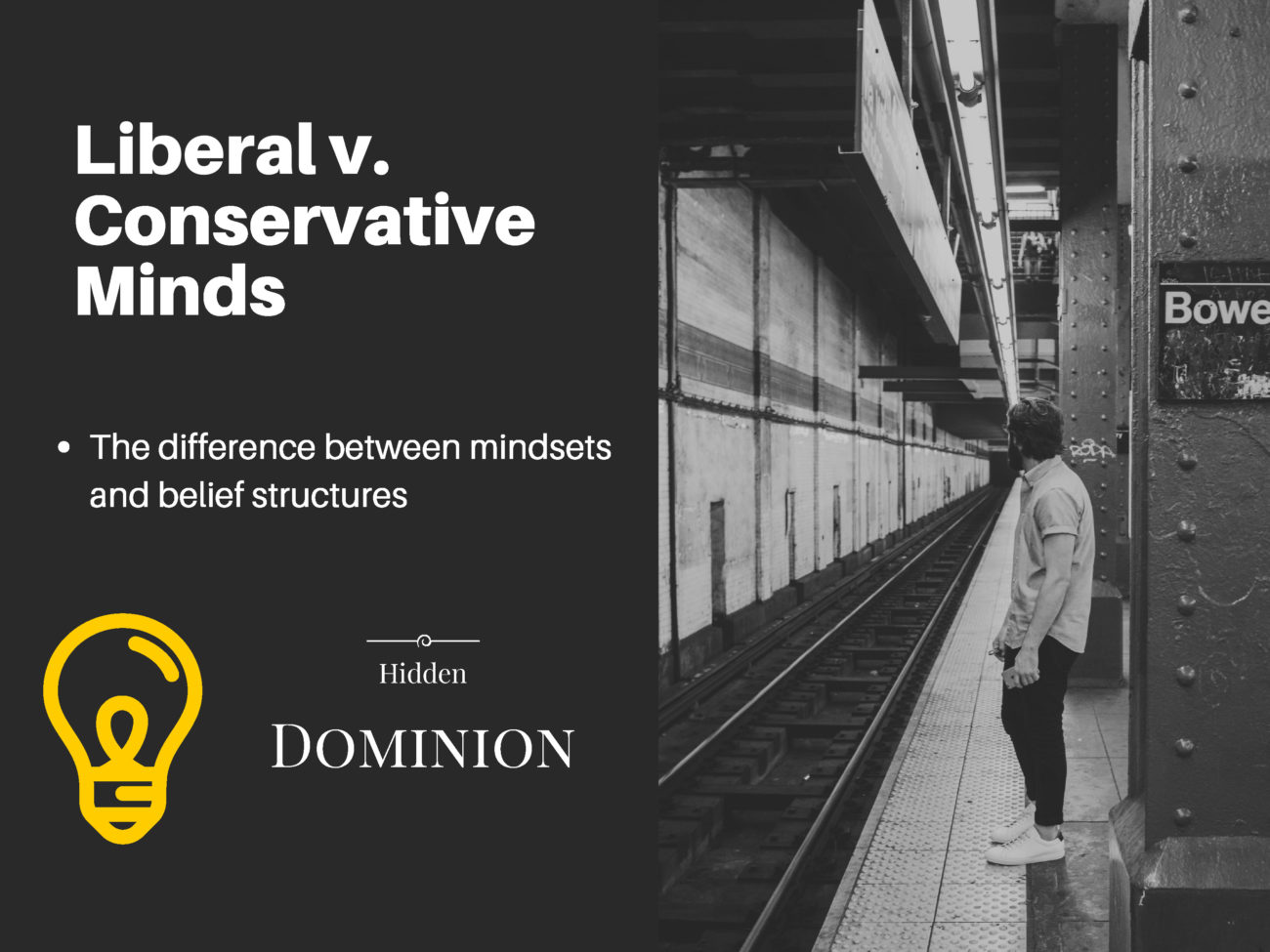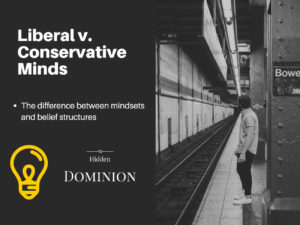Most Recent News


Popular News




No political value is dictated strictly by a persons' politics. It's something deeper. How does the liberal vs conservative mind differ?
 No political value is dictated strictly by personal politics. It’s something deeper. Something deeply ingrained in their morals, their values, or even their foundation of thought.
No political value is dictated strictly by personal politics. It’s something deeper. Something deeply ingrained in their morals, their values, or even their foundation of thought.
Which is why when someone states one of their political opinions (IE: gun control), it’s not so much about the fact they advocate gun control, but the fact that we have this underlying moral discrepancy that conflicts with each other.
To get deep into the mind of your adversary, you have to recognize this. And more importantly, you have to find their divergent point.
The divergent point is the area where their values go separate ways. Where they are hypocritical for holding one political opinion, while dismissing another even when the two opinions share the same necessary foundation (a non-divergent point).
In easy terms, their bias.
We all have it. We all hold some positions that are likely hypocritical until we reflect on it and adjust. It’s a natural failing point. No one is perfect.
I was talking with one of my friends the other day and politics came into the discussion. She mentioned offhand toward the beginning that climate change was of great concern to her.
We passed that talking point relatively quickly because I’m no expert on climate and don’t care about the climate change doomsdayism. We eventually came around to one of my arenas, economics.
And she mentioned that she was a huge supporter of international trade. Declaring the normal economic mantra that international is ‘usually mutually beneficial’. Which, in strictly economic terms, may or may not be accurate. However:
I remembered her off-hand comment about climate change from earlier in the conversation and brought it up.
Because this was her divergent point. Where her political opinions didn’t match her underlying values.
To be in favor of climate change regulations, you have to have an underlying principle that we owe a great deal to Earth—that we must protect and preserve her beauty at all costs.
However, international trade (globalism), does the exact opposite of that. We receive the cheaper made goods through tremendous burden on the environment. Do you think China or India have a lot of enviro regulations?
Of course not.
They are huge environmental drains. Extra resource usage, no protections on anything worthy, and even massive over-consumption of cheaper goods, has become an enormous problem.
Yet, for example, China’s manufacturing exports are 90% of their total exports.
And manufacturing is the worst offender for environmental impact.
We could make things in the states through a protectionist economic policy at much less detriment to the environment. A massive impact, considering our import levels.
Because we have regulations and laws that limit it. We can’t enforce those laws in China. Only through reducing trade could we make a verifiable impact.
So the mindset behind the two policies was similar: most liberals do support climate change and international trade. However, the two conflict on a moral/philosophical level.
Now let’s look at another common way this happens.
Let’s take an example from The Federalist Papers:
7) Conservatives believe that abortion ends the life of an innocent child and since we believe that infanticide is wrong, we oppose abortion.
Most liberals, despite what they’ll tell you, believe that abortion ends the life of an innocent child, but they prefer killing the baby to inconveniencing the mother.
First, this may be a bit biased in itself. I’m sure there are plenty of liberals that honestly don’t believe that abortion is killing the life of an innocent. They are idiots, but they are genuine idiots.
But for those that do support the notion of life is less than inconvenience, we need to take a note at another platform position: the death penalty.
The conservative platform is:
Based on morality regarding murder and justice. Killing a criminal who has harmed another is moral and justifiable. However, killing an innocent child is murder and not justifiable.
This is a traditional morally guided principle. It makes sense. Punishment for a wrong, no punishment for an innocent.
The liberal platform is:
Based on morality regarding subjective interpretations of morality. Killing a criminal is not justifiable because it is murder. However, killing a child is fine because it’s the mother’s body and thus not up to us to decide.
In both cases, murder would be a principal point. However, the liberal platform would be based on the subjective nature of which is worse: murder or limitation of choice. Liberals would choose the limitation of choice, because of their secular moral interpretation.
It’s flip-flopping on morality. It’s fine to kill an innocent if it stops an ‘inconvenience’, but it’s not fine to kill a criminal who has already committed an ‘inconvenience’ (such as a spree-killer).
So what is it that I’m trying to get at with this?
It’s that the liberal vs conservative mind is different, not just on a political opinion level. It’s different on a moral and value-driven level at the core.
When debating someone on the other side of the political spectrum, it’s helpful to take this into consideration. It may be the only way you can “pierce the veil”, so to speak.
If you just go after a common policy point, it won’t lead anywhere. It will just continue to do a round-about circlejerk until you both feel like you won.
You have to get to the bottom of the underlying belief system—the underlying values—before you’ll ever get anywhere.
Comments are closed.
(Learn More About The Dominion Newsletter Here)
conservative: protective
liberal: mentally unstable